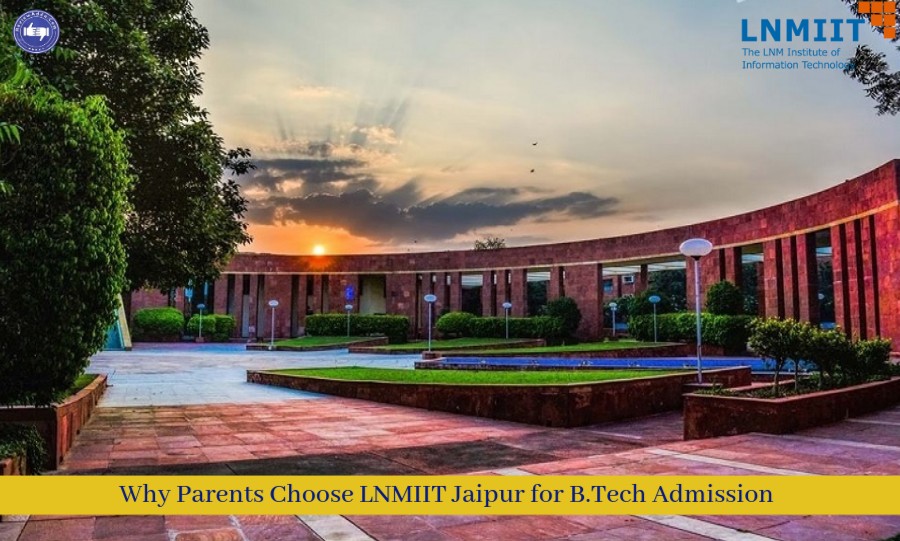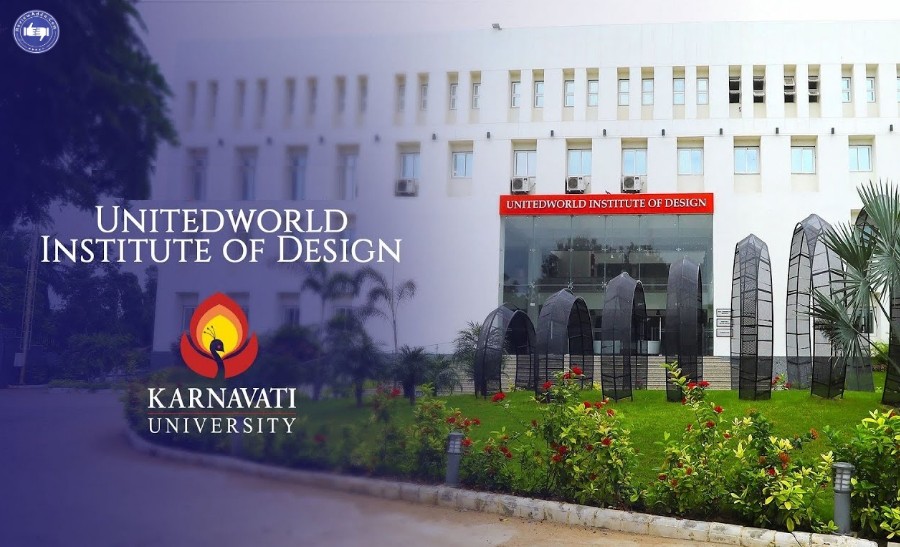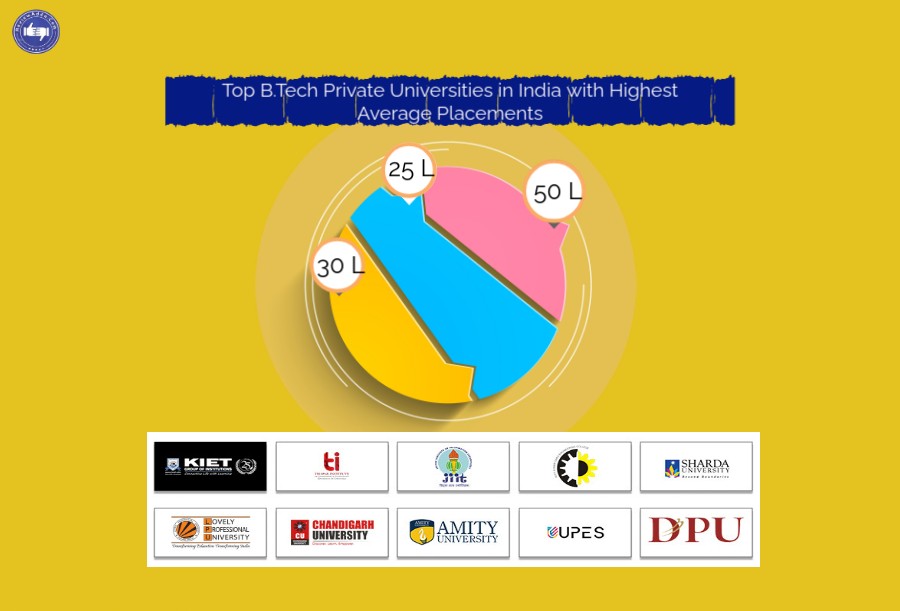Topic We Cover: How to prepare for UPSC IAS exam
1. How to prepare for UPSC IAS Exam?
2. Why UPSC IAS Exam is quite tough?
3. How to prepare for UPSC IAS exam without coaching?
4. How to prepare for UPSC IAS exam after 12th?
5. How to prepare for UPSC IAS exam while working?
6. Most Important Topics for how to prepare for UPSC IAS exam (Prelims)
- Plan/Policy
- Bills and Acts
- Schemes/Projects
- Indian Economy
- International
- Science and Tech
- Indian Polity
- Geography + Environment
- Modern History
- History of India
- Miscellaneous
7. How to prepare for UPSC IAS Exam – Age limit and number of attempts
8. 10 Tips for Students to how to Prepare for UPSC IAS Exam while in College
9. UPSC Exam Guidance – 7 Tips on how to prepare for UPSC IAS exam
UPSC IAS Exam is one of the prestigious exams for civil services held in India every year. To qualify the entrance of this exam and serves the nation is a dream of many, but the willing candidates were stuck in the search of the numerous queries like How to prepare for UPSC IAS exam?, How to begin?, What to study?, etc.
How to prepare for UPSC IAS Exam?
Aspirants are keen to be the next IAS officer and be a part of the India’s premier civil service but actually they don’t know exactly how to prepare for UPSC IAS exam. They are surrounded by so many questions related to the exam like eligibility of the UPSC IAS Exam, paper pattern of UPSC IAS Exam, UPSC IAS exam dates, etc. They are confuse to take coaching for the UPSC IAS exam preparation or not, because a one wrong decision proved to be very costly to any willing candidate, so its better that first know how to prepare for UPSC IAS Exam then, proceed accordingly.

Why UPSC IAS Exam is quite tough?
Before moving further in the search of the answer of ‘How to prepare for UPSC IAS Exam?’, you should understand ‘why UPSC IAS exam is quite tough?’. Well! UPSC civil services exam is tough because of its paper pattern. The UPSC IAS Exam paper pattern comprises of three stages – Prelims, Mains, and Interview and students need to clear each stage separately to move to the next level. This exam not only checks the knowledge and writing ability of the candidate but also check the mental strength of the candidate. And the next toughest thing about this exam is the UPSC IAS Exam syllabus which covers a disparate range of subjects.
To make clear the above point of difficulty level of the exam, let’s have a look at the success rate in the IAS entrance exam. Every year, lakhs of applicants apply for the exam, out of this, only 25% will move to the next level i.e. ‘mains’. After the main exam only 15% are left for the interview round and in the interview round the success rate is about 50%. That means the percentage to pass the UPSC exam is less than 1%. That’s why UPSC exam can be called tough.
But, if the student follow the strategy and prepare for the exam as per the direction, they can easily crack the exam. Here is the list of tips which can help the students to focus on - how to prepare for UPSC IAS exam, rather than Why this exam is tough!
Useful Tips For how to prepare for UPSC IAS Exam:
- UPSC chief gives IAS/IPS tips
- How to Cope with Stress of Civil Services Exam
- How to fill the UPSC Application Form
- IAS Strategy
- How to Prepare Notes
- How to Write Answers
- How to Read
- Time Management
- How To Prepare For UPSC IAS Exam - Prelims
- Gaining Mental Power for UPSC
- how to prepare for UPSC IAS exam - Question Papers
- Suggested Reading
- How to Choose Mains Subjects
- Tips On Choosing IAS Coaching Centers
- Main Examination Syllabus
- how to prepare for UPSC IAS exam tips Videos
- FAQ
How to prepare for UPSC IAS exam without coaching?
Qualifying entrance exam without taking any coaching classes is an achievement in its own. So one thing is clear with this, that coaching is not the solution of any exam that but your own preparation is - with or without coaching! Most of the students prefer to go to coaching as it sets the daily routine, practice, and targets, but these can be done on your own. The only thing for how to prepare for UPSC IAS exam is only the discipline and determination of the aspirant. Here we present you a to-do list for self-study which gives you the solution of how to prepare for the UPSC IAS exam.
- Manage your time effectively and be disciplined. Develop a routine!
- Do selective reading but be thorough in those portions
- Remember to have a good mix of books and self made notes
- Take mock tests at regular intervals is important for how to prepare for UPSC IAS exam
- The solution of how to prepare for UPSC IAS exam is start preparations early, it’s a vast syllabus!
- Prepare mind maps and short notes regularly! They help your memory.
- Reach out to fellow aspirants. Discuss topics!
- Most importantly believe that you can do it without coaching!
How to prepare for UPSC IAS exam after 12th?
Focused in early stage for ‘how to prepare for UPSC IAS exam’ is great advantage as you can enhance your general awareness and really excel in the GS paper and interview as you will tune yourself to analysis and awareness. And finally when the time comes you will not waste your precious time on finding out about the exam. Have a look on a to-do list for how to prepare for UPSC IAS exam after 10+2.
- Find out everything about the exam
- Carefully select your graduation degree so that you will the benefits for your IAS exam preparation. Because you required a social subject for your IAS exam.
- Follow the news regularly
- Give your opinion and discuss the news daily
- Give IQ tests and work on logical reasoning.
- Do practice by giving online test for IAS exam.
- Subscribe to a magazine and read articles with understanding
How to prepare for UPSC IAS exam while working?
If you are working then to do the preparation for UPSC IAS exam will become tougher because you have less time for preparation. In this situation time management is the crucial to your preparations. Some to-do list of how to prepare for UPSC IAS Exam while doing the fulltime job is:
- Set a schedule as per your liking and stick to it
- Find people who are in your situation or in your organization and socialize with them to utilize that time for discussions. Due to which, you will have time to hangout with friends who are also serious about the IAS exam.
- Look for notes and study material that are short and effective. But some topics you will have to do in-depth studies.
- Listen the headlines of the news and avoid to waste time in unwanted discussion based news unless the topic demands it.
- To speed up your learning skills use memory techniques.
- Frequently practice giving tests and writing answers. That will work as revision and practice.
Most Important Topics for how to prepare for UPSC IAS exam (Prelims)
To understand how to prepare for UPSC IAS exam (preliminary exam) you have to do smart preparation within a fixed time-frame. The meaning of smart preparation is to do the preparation on the basis of the analysis of given UPSC IAS syllabus and previous year UPSC IAS question papers.
According to the study, in last few years, most of the questions asked either in the IAS Prelims or IAS Mains used to be closely related to the events that occurred in the recent past.
Besides this, how to prepare for UPSC IAS exam, aspirants need to prepare all the topics associated with the environmental, socio-economic, political, geographical, historical and cultural aspects of India.
For the benefit of IAS candidates on how to prepare for UPSC IAS exam, we have prepared a short but a advtageous list of current affairs topics. If an aspirant covers the topics listed in this article, more than 60% of the IAS Prelims Exam preparation can be effectively done. Besides the list will be useful during the preparation of the IAS Main Exam.
Plan/Policy
- Young India-Vibrant India initiative for IAS Exam
- Most Important Government Schemes II for IAS Exam 2018
- Most Important Government Schemes I for IAS Exam 2018
- Provisions of National Intellectural Property Rights (IPRs)
- National Mineral Exploration Policy 2017
- National Health Policy 2017
- Modi Government's Schemes and Policy
- NITI Aayog’s Draft National Energy Policy 2017
- National Wind-Solar Hybrid Policy 2016
- New Aviation Policy
- National Disaster Management Plan
- Hydrocarbon Vision 2030 for North-East
- Hydrocarbon Exploration and Licensing Policy
 Get Updated Review ( Voice Based Alumni Feeback)
Get Updated Review ( Voice Based Alumni Feeback)
-
 Check Review (Alumni Feedback) - Lovely Professional University - [LPU] – Click Here
Check Review (Alumni Feedback) - Lovely Professional University - [LPU] – Click Here -
 Check Review (Alumni Feedback) - Amity University – Click Here
Check Review (Alumni Feedback) - Amity University – Click Here -
 Check Review (Alumni Feedback) - Manipal University – Click Here
Check Review (Alumni Feedback) - Manipal University – Click Here -
 Check Review (Alumni Feedback) - SRM University Sonipat – Click Here
Check Review (Alumni Feedback) - SRM University Sonipat – Click Here -
 Check Review (Alumni Feedback) - Ansal University – Click Here
Check Review (Alumni Feedback) - Ansal University – Click Here
- The Fugitive Economic Offenders Bill 2018
- Livestock Marketing and Model Agricultural Produce (Promotion & Facilitation) Act, 2017
- Geospatial Information Regulation Bill
- Land Acquisition Act and Reforms
- GST Bill
- Protection of Rights on Marriage Bill of Muslim Women, 2017
- National Water Framework Bill
- Real Estate Bill
- Enemy Property Amendment Bill 2016
- Carriage by Air (Amendment) Bill, 2015
- Juvenile Justice Act, 2015
- Anti-Hijacking Bill
- Compensatory Afforestation Fund Bill, 2015
- Mines and Minerals (Development and Regulation) Amendment Bill, 2015
- Regional Centre for Biotechnology Bill, 2016
- Industries (Development and Regulation) Amendment Bill, 2015
- Aadhaar Bill, 2016
- SC and ST (Prevention of Atrocities) Amendment Rules, 2016
- Representation of the People Act, 1950
- Rights of Transgender Persons Bill, 2015
- Model Shops and Establishments (Regulation of Employment and Conditions of Service) Bill, 2016
- Insolvency and Bankruptcy Code Bill 2016
- Sugar Cess (Amendment) Bill, 2015
Schemes/Projects
- Ayushman Bharat – National Health Protection Mission
- Indradhanush Scheme for Banks
- Pandit Deendayal Upadhyay Shramev Jayate Karyakram
- SETU BHARATAM PROJECT
- Pradhan Mantri Fasal Bima Yojana
- Gram Uday se Bharat Uday Abhiyaan
- Smart Cities Mission
- Agriculture Marketing in India
- Pradhan Mantri Ujjwala Yojana
- Beti Bachao Beti Padho Scheme
- Rurban Mission
- Project Sunrise
- Ganga Gram Yojana
- The future of crypto-financing in India
- Universal Basic Income
- India’s Infrastructure needs and the Smart Cities Mission
- Asia Africa Growth Corridor
- EPF Tax Issues
- Economic Survey Questions 2016-17
- Demonetisation
- Cashless Economy
- Economic Survey 2015-16
- Union Budget 2016-17: Highlights
- Union Budget 2016-17: Financial Sector Reforms
- Payment and Settlement Systems in India: Vision-2018
- India Post Payments Bank
- Reforms in FDI Policy
- National Capital Goods Policy 2016
- Inflation and its dynamics
- CRR, SLR, Repo Rate, Reverse Repo Rate, Bank Rate
- 4th Industrial Revolution
- New Silk Route
- 14th Finance Commission Recommendations
- Stand Up India Scheme
- Agriculture Schemes
- NBFC Guidelines
- Double Taxation Avoidance Treaties with other countries
- Economic Survey 2017-18: Analysis and Questions
International
- European Refugee Crisis
- Missile Technology Control Regime and India
- Brexit Issue
- India and NSG Membership dynamics
- Nuclear Security Summit
- Convention on Supplementary Compensation for Nuclear Damage
- Supporting Syria and the Region Conference 2016
- International Solar Alliance
Science and Tech
- Potassium Bromate
- Zika Virus
- IRNSS
- 3D Printing Technology
- Solar Cells
- GPS
- Blood
- Mineral important for Human Growth
Indian Polity
- National Anti-Profiteering Authority
- Indian Foreign Policy
- National Intellectural Property Rights (IPRs) Provisions
- Aadhaar and the Right to Privacy
- Naga Peace Accord
- The Enemy Property (Amendment and Validation) Ordinance
- Police Reforms in India
- Religious Liberty and Women Rights
- Cooperative Federalism
- Representation of the People Act, 1950
- Fundamental Rights
- DPSP— Animal Husbandry, Uniform Civil Code, Child Labour
- Union Executive— Union Council of Ministers and Prime Minister
- Types of Bills- Money Bill, Finance Bill, Private Member Bill
- Veto Powers of President
- Union Judiciary and related provisions
- Union and State – Administrative Relations
- Union and State – Financial Relations
- State Judiciary
- Transaction of Business Rules
- Constitutional Position of NCT of Delhi
Geography + Environment
- Effectiveness of National Disaster Management Authority in India
- Cleaning of River Ganga: Programme and Achievement
- Green Climate Fund
- Effectiveness of NDMA in India
- National Green Tribunal of India
- Climate Change and Food Security
- GM Mustard Crop Approval and Other Issues
- Role of Governments in flood mitigation
- Indus Water Treaty and Analysis
- Cauvery Water Dispute and Analysis
- Labour Reforms in India
- Earth Interior and Earthquake
- Geological Time scale of Evolution
- Himalayas in India
- Landforms
- Climate and Types of Climates
- Census 2011
- Different Indices related to Human Development
- Monsoon, ITCZ
- Forests in India
- Water Resources of India—River systems, Waterfalls
- Soils in India
- Climate Change and related Conferences Chronology — Paris Summit
- Major Disasters in the Year
- Renewable Energy
- Noise Pollution
- Air Pollution
- Food Web and Food Chain
Modern History
- 1857 Revolt and Associated Leaders
- Social Reforms in the Indian Society and related Acts
- Indian National Congress
- India After the arrival of Mahatma Gandhi
- Life of Mahatma Gandhi and the Movements
- HSRA and associated leaders
- Bengal Partition and Delhi Darbar
- List of Governor General and Associated Works
- Muslim League
- Education Under British
- Agriculture Taxing Structure under Britishers
- Agrarion Revolts
History of India
- Indus Valley Civilisation- Harappan, Mohanjodaro
- Gautama Buddha, Buddhist Councils and principles of Buddhism
- Jainism, its principles and 24 Jain Tirthankars
- Temple Architectures
- Mauryan Rule overview
- Ashokan Inscriptions
- Gupta Rulers and its overview
- Foreign Visitors
- Accession of Qutub-ud-Din Aibak
- Sultanate Period
- Tughlaq Rulers
- Vijay Nagar Empire-Harihar and Bukka
- Mughals Rulers, Arts, Architecture and major achievement of Mughal Rulers
- Akhbar and his religious philosophy- in Details
- Aurangzeb and his Policies
- Hyder Ali, Tipu Sultan and wars they fought
- Peshwas
Miscellaneous
- Solid Waste Management in India
- National Company Law Tribunal and Appellate Tribunal
- Animal Husbandry in India
- National Agriculture Market
How to prepare for UPSC IAS Exam – Age limit and number of attempts
|
CATEGORY |
AGE LIMIT |
ATTEMPTS |
|
General |
32 Years |
6 |
|
OBC |
35 years |
9 |
|
SC / ST |
37 Years |
Unlimited |
|
PH |
Gen-42 Years OBC-45 Years SC/ST-47 Years |
Unlimited |
|
J & K Domicile |
Gen-37 Years OBC-40 Years SC/ST-42 Years PH-50 Years |
Depending on the categories viz. Gen, OBC, SC/ST, PH |
|
Ex-Servicemen |
Gen-37 Years OBC-40 Years SC/ST-42 Years |
Depending on the categories viz. Gen, OBC, SC/ST, PH |
|
Disabled Defence Services Personnel* conditional |
Gen-37 Years OBC-40 Years SC/ST-42 Years |
Depending on the categories viz. Gen, OBC, SC/ST, PH |
10 Tips for Students to how to Prepare for UPSC IAS Exam while in College
As per the facts college is the best place to initiate your UPSC IAS exam preparation because at this stage aspirants are full of enthusiasm of the young age and the excellence of the student’s mind, that’s why, the one who is just passed out from the college have higher probabilities to clear IAS exam. But proper guidance and plan for how to prepare for UPSC IAS exam is must, otherwise the attempt may turn ineffectual, resulting in the loss of precious attempts. Few tips for how to prepare for IAS Exam are:
- Take the early advantage for how to prepare for UPSC IAS exam
Do remember the eligibility criteria for UPSC Civil Service Exam is 21 years and a graduation in any subject. The one who are in their final year of graduation can also apply for IAS Prelims. But most of the people miss this early opportunity and come into UPSC Exam very late. As per the fact that the average age of candidates who make it into the final UPSC IAS rank list is 28 years. Early initialization gives many advantages. But for that, you need right guidance.
- Realize that you have time constraints, so prioritize your time!
Start your UPSC IAS preparation along with college studies will have time constraints. Unlike many other aspirants who can dedicate a full year for UPSC preparation. So it is advisable to do what is on your priority. Just go thoroughly with the UPSC IAS Exam syllabus. Go through the previous year question papers which give you the right direction.
- Buy the most recommended books for IAS preparation
For the IAS preparation the highly recommended books are:
NCERT Books – Buy online from Amazon or download NCERT PDF.
Polity – by Laxmi kanth
Economics – by Ramesh Singh
History – By Bipan Chandra
- Enroll for mock test series
Enrollment for mock test series is must for how to prepare for UPSC IAS exam. It is a trusted test series by over 90,000 aspirants and no serious aspirant should miss our online mock tests.
In mock test you should not worry about the score as it is only for your own learning. These tests make you understand about the UPSC paper pattern and the difficult concepts asked in the question paper.
- Utilize your spare time
If you are serious about the IAS exam then there is no time with you to waste, utilize your spare time by reading resources provided by the mobile app of ClearIAS by installing this app on your phone. So, now the learning is available on mobile also at free of cost – whether you are sitting in the library or waiting for a bus.
The mobile app available for mock test on internet was already downloaded by over 3, 00,000 aspirants for IAS preparation.
- Read newspapers and magazines
Another step towards how to prepare for UPSC IAS exam is read newspapers and magazines on daily basis, especially we advise to read The Hindu and Indian Express for a quality articles. Give importance to editorials and op-ed articles. To understand the current perspective of the country, EPW is the excellent option in magazines. For Government schemes and initiatives subscribe Yojana and Kurukshetra.
- Keep writing
Speed is also a crucial aspect in UPSC Mains Exam for how to prepare for UPSC IAS exam. To enhance your writing speed we will advise you to participate in essay competitions in your college. Write letters to editors of famous newspapers. Practice ClearIAS main mock questions.
- Discuss current issues with your friends
Peer learning is one of the most essential parts which help the aspirant in IAS exam. Build a group of such friends with whom you can discuss things, do the conversations and debates on various topics like politics, national issues, etc.
- Finish 1-2 subjects during semester break
Few toppers make a strategy to finish 1-2 optional subjects during semester break and during college they only work on General Studies (GS) and current affairs. You can go for two options either finish your optional subject or the entire set of NCERTs from class 6-12. You can also finish all the free study materials provided in the mobile app of mock test series to build your concepts.
- Read toppers interviews
Toppers are those who give you right direction and exact strategy about the IAS preparation which they followed at their time. So, try to listen toppers interview available on internet.
UPSC Exam Guidance – 7 Tips on how to prepare for UPSC IAS exam
Each day, number of IAS aspirants asks for lot of questions related to IAS exam guidance. Some ask for how to prepare for UPSC IAS exam, how we start preparation for IAS, etc. So, here we are come out with basic queries of keen candidates. Hope, it will work for you.
You can easily accomplish your task if you’re self-driven, but things become 10 times easier when you know about the one who shows you right path. Here we driven you towards the right way, the right guidance, plan , books, where you get study material, and where you get the mock test series because we don’t want anybody is left our without giving the mock test series due to their inaccessibility to afford expensive IAS classroom coaching. Go through the seven tips advise by us it is helpful for everyone who is confused – beginners or veterans.
- #Tip 1: Know about the necessity of the UPSC Civil Services Exam!
- #Tip 2: Buy some recommended and essential books!
- #Tip 3: Read online study materials (FREE)
- #Tip 4: Get the right guidance; follow ClearIAS articles on UPSC Civil Services Exam guidance
- #Tip 5: Join mock test series to practice, learn, and revise!
- #Tip 6: Beware of low-quality IAS Coaching Centers!
- #Tip 7: Stop worrying too much; just do it!





.jpg)
